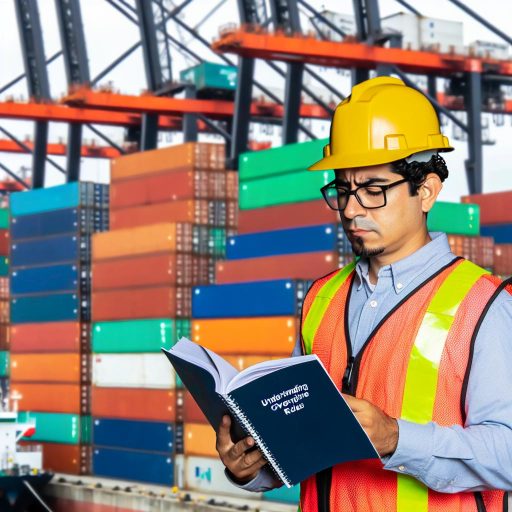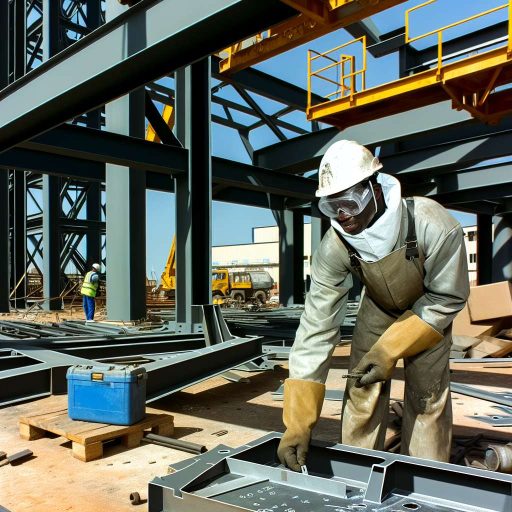Introduction:
Effective waste disposal is crucial in construction to ensure environmental sustainability and safety.
Poor waste management can lead to pollution, health hazards, and legal issues in construction projects.
Proper waste segregation:
When it comes to construction projects, waste generation is inevitable.
Understanding the different types of waste that are typically generated during construction is crucial.
- Concrete waste: Broken concrete, bricks, and stones are common in construction sites.
- Wood waste: Scrap wood, pallets, and packaging materials are often discarded.
- Metal waste: Steel bars, pipes, and wires are frequently left behind after construction.
- Plastic waste: Packaging materials, pipes, and other plastic items contribute to waste generation.
Importance of separating waste:
Proper waste segregation is essential for efficient and effective waste management in construction.
Separating waste into categories such as recyclable, hazardous, and non-recyclable is beneficial for several reasons.
- Recyclable waste: Materials like concrete, metal, and wood can be recycled and reused in future construction projects.
- Hazardous waste: Substances like paints, solvents, and asbestos require special handling to prevent environmental contamination.
- Non-recyclable waste: Items that cannot be recycled or reused should be disposed of properly to avoid negative impacts on the environment.
Recycling and Reuse Methods:
When it comes to waste disposal in construction, recycling and reusing materials are effective methods that can help reduce environmental impact and save costs.
By implementing recycling and reuse practices, construction projects can become more sustainable and eco-friendly.
Advantages of Recycling Materials in Construction Projects:
- Reduces the need for raw materials extraction.
- Conserves energy and reduces greenhouse gas emissions.
- Diverts waste from landfills, reducing environmental impact.
- Cost-effective by saving on disposal fees and material costs.
- Promotes a circular economy by closing the recycling loop.
Examples of Commonly Recycled Materials like Concrete, Wood, and Metal:
There are several materials commonly used in construction that can be recycled and reused, including:
- Concrete: Crushed concrete can be used as aggregate for new concrete production.
- Wood: Reclaimed wood can be used for flooring, furniture, and structural elements.
- Metal: Scrap metal can be melted down and reformed into new metal products.
By incorporating recycling and reuse methods into construction projects, builders and developers can help minimize waste, conserve resources, and contribute to a more sustainable future.
Explore Further: Assembler Salary Expectations and Benefits
When it comes to effective waste disposal methods in construction, composting organic waste is a sustainable solution.
This method benefits both the environment and the construction site.
Let’s explore the benefits of composting organic waste on construction sites and the steps for setting up a composting system.
Benefits of Composting Organic Waste on Construction Sites:
- Reduces landfill waste and methane emissions.
- Improves soil health and fertility.
- Reduces the need for chemical fertilizers.
- Creates a closed-loop system for organic waste.
- Helps in erosion control and water retention.
Steps for Setting Up a Composting System and Using Compost as Soil Amendment:
- Identify suitable location for composting.
- Collect organic waste from construction activities.
- Chop or shred organic waste for faster decomposition.
- Add bulking agents like wood chips or sawdust for aeration.
- Monitor and maintain proper moisture levels in the compost pile.
- Turn the compost pile regularly to aerate and mix the materials.
- Allow the compost to decompose for a few weeks to months.
- Use mature compost as soil amendment for landscaping or gardening.
- Repeat the composting process with new organic waste materials.
Composting organic waste on construction sites not only reduces the environmental impact of construction activities.
It also provides a valuable resource for improving soil quality and plant growth.
By following the steps for setting up a composting system and using compost as a soil amendment, construction sites can contribute to a more sustainable and eco-friendly future.
You Might Also Like: Effective Communication in Warehouse Management
Hazardous waste disposal:
Construction sites often contain hazardous materials that need proper handling and disposal.
- Identification of hazardous materials commonly found in construction sites.
- Asbestos, lead, mercury, and PCBs are some common hazardous materials found in construction sites.
- Legal requirements for disposal of hazardous waste and proper handling procedures.
- The Environmental Protection Agency (EPA) sets regulations for the disposal of hazardous waste.
- Proper handling procedures include using protective gear, sealed containers, and designated disposal areas.
See Related Content: Top Challenges Faced by Ironworkers in Construction
Transform Your Career Today
Unlock a personalized career strategy that drives real results. Get tailored advice and a roadmap designed just for you.
Start Now
Waste Reduction Strategies
Here are some ways to minimize waste production during construction projects.
- Implementing practices like lean construction
- Utilizing just-in-time delivery to reduce waste
- Reusing materials whenever possible
- Recycling materials such as concrete, wood, and metal
- Choosing suppliers who prioritize sustainability
- Training workers on proper waste management techniques
By adopting these waste reduction strategies, construction companies can not only minimize their impact on the environment but also save costs and improve efficiency in their projects.
Lean construction principles, in particular, focus on optimizing processes to eliminate waste and improve overall project delivery.
Just-in-time delivery involves receiving materials only when they are needed, reducing the risk of over-ordering and excess inventory.
This approach helps to minimize waste by ensuring that resources are used efficiently throughout the construction process.
Additionally, reusing materials whenever possible can further reduce waste and lower the demand for new resources.
Salvaging materials from demolition sites and repurposing them in new construction projects can be a cost-effective and sustainable approach to waste management.
Recycling materials such as concrete, wood, and metal also plays a crucial role in waste reduction.
By collecting and processing these materials for reuse in new projects, construction companies can divert significant amounts of waste from landfills and reduce their environmental footprint.
Choosing suppliers who prioritize sustainability can help construction companies source environmentally friendly materials and products.
By partnering with suppliers who share their commitment to sustainability, contractors can ensure that the materials they use in their projects are produced and delivered in an eco-friendly manner.
Training workers on proper waste management techniques is another important aspect of waste reduction in construction.
By educating employees on how to sort, collect, and dispose of waste correctly, companies can minimize the risk of environmental pollution and ensure compliance with waste disposal regulations.
Implementing waste reduction strategies such as lean construction, just-in-time delivery, material reuse, recycling, sustainable sourcing, and worker training is essential for effective waste disposal in construction projects.
By prioritizing waste reduction, construction companies can promote sustainability, improve project efficiency, and contribute to a cleaner and healthier environment.
Discover More: A Day in the Life of a Professional Drywall Installer
Collaboration with waste management companies:
Importance of working with professional waste management companies.
Services offered by waste management companies for construction projects.
When it comes to effective waste disposal methods in construction, one of the key aspects to consider is collaborating with waste management companies.
Showcase Your Business Today
Reach thousands of readers actively exploring professional services. Publish your business profile and grow your audience now.
Publish NowThese companies play a crucial role in ensuring that construction sites are clean, organized, and safe for workers and the environment.
Importance of working with professional waste management companies:
Professional waste management companies have the expertise and experience to handle construction waste efficiently.
They are equipped with the necessary tools and resources to collect, transport, and dispose of various types of waste generated during construction projects.
By partnering with a professional waste management company, construction companies can ensure that waste is disposed of in compliance with local regulations and environmental standards.
This helps in reducing the risk of fines and penalties for improper waste disposal practices.
Services offered by waste management companies for construction projects:
Waste management companies offer a wide range of services tailored to meet the specific needs of construction projects.
Some of the services they provide include:
- Waste collection and transportation: Waste management companies have a fleet of vehicles and containers to collect and transport construction waste from the site to the disposal facility.
- Sorting and recycling: These companies have facilities for sorting and recycling different types of construction waste such as concrete, wood, metal, and plastics. This helps in diverting waste from landfills and promoting sustainability.
- Disposal of hazardous waste: Construction sites often produce hazardous waste such as chemicals, asbestos, and lead-based paints. Waste management companies are trained to handle and dispose of such waste safely and responsibly.
- Compliance assistance: Waste management companies help construction companies to ensure compliance with waste disposal regulations. They provide guidance on proper waste segregation, storage, and documentation required by authorities.
- Emergency response: In case of accidents or spills on the construction site, waste management companies are equipped to provide quick and efficient emergency response services to minimize environmental damage and health risks.
- Education and training: Waste management companies offer educational programs and training sessions for construction workers on proper waste management practices. This helps in promoting a culture of waste reduction and recycling within the construction industry.
Collaborating with waste management companies is essential for effective waste disposal in construction.
By working together, construction companies and waste management companies can ensure that waste is managed responsibly, sustainably, and in compliance with regulations.
Importance of Sustainable Waste Management in Construction
Recap of the key points discussed in the blog post
Effective waste disposal methods are essential in construction to minimize environmental impact.
Sorting waste on-site can reduce landfill waste and increase recycling rates.
Utilizing reusable materials and donating excess resources can also help reduce waste in construction projects.
Building a culture of sustainability within construction teams can promote responsible waste management practices.
Implementing waste management plans and regularly monitoring progress are key to successful waste disposal in construction projects.
Compliance with regulations and guidelines is necessary to ensure safe and environmentally friendly waste disposal.
Proper training of construction workers on waste management practices is crucial for successful implementation.
Collaboration with waste disposal experts and local authorities can provide valuable insights and resources for effective waste disposal.
Investing in innovative technologies and practices can help streamline waste disposal processes and improve efficiency in construction projects.
Call to action for construction professionals to prioritize effective waste disposal methods in their projects
It is imperative for construction professionals to prioritize effective waste disposal methods in their projects to reduce environmental impact and promote sustainability.
By implementing the strategies discussed in this blog post, construction teams can play a significant role in minimizing waste and contributing to a cleaner environment.
Together, let’s commit to responsible waste management practices in construction and create a greener future for all.
Additional Resources
Guide for Chemical Spill Response – American Chemical Society
Nuclear Waste Disposal | U.S. GAO
[E-Books for Sale]
The Big Book of 500 High-Paying Jobs in America: Unlock Your Earning Potential
$19.99 • 500 High-Paying Jobs • 330 pages
Explore 500 high-paying jobs in America and learn how to boost your career, earn more, and achieve success!
See All 500 High-Paying Jobs of this E-Book
1001 Professions Without a Degree: High-Paying American Jobs You Can Start Now
$19.99 • 1001 Professions Without a Degree • 174 pages
Discover 1001 high-paying jobs without a degree! Unlock career tips, skills, and success strategies for just $19.99!




